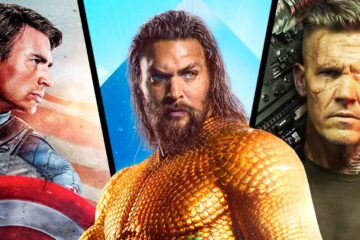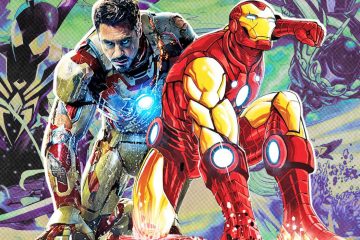There’s a new Punisher in town. The Punisher has been in an interesting position for a while. With his storied Marvel history and the lengths to which his symbol has been co-opted beyond the page, the identity of Frank Castle has become muddied. It’s impossible to view him or his iconic white skull symbol as a force for justice. Sure, he’s punishing bad guys, but he’s far from heroic. This puts Marvel in a tricky predicament. Punisher is one of their premiere characters, name-dropped in conversations with the same breath as Hulk or Daredevil.Punisher is one of the most popular and recognizable characters in the Marvel Universe. Frank Castle, though, has too much baggage at this point. In the most recent Punisher miniseries, Castle is put through hell. He goes from becoming the chosen avatar of the god of murder and seeing his wife resurrected to losing that power, getting divorced, and using magic to seemingly annihilate himself. This complete deconstruction and demise of Castle’s character leaves the door open for a new Punisher to emerge. Punisher #1, written by David Pepose with art by Dave Wachter, colors by Dan Brown, and letters by VC’s Cory Petit, introduces readers to a new incarnation of the ruthless, iconic vigilante.Pepose writes a super fun issue. It feels odd to describe something focused squarely on vengeful murder and violence as “fun,” but readers should know what they’re in for when grabbing a Punisher comic. Is there a cold, determined, ridiculously efficient-at-violence man stalking the underworld, obliterating everyone in his way? Then it’s probably a successful Punisher book. This highlights some of the conflicts of the character at large, though. It’s widely accepted that Frank Castle’s mission was fundamentally flawed. Part of the point is that he “takes on that burden” so others don’t have to. It pushes the idea that this type of solution is sometimes the only way, and there will need to be people willing to do that. When the personal element of his mission is taken out of the conversation, it’s easy to see why it’s such complicated, incendiary subject matter.RELATED: Marvel Preview Introduces a Brand-New Punisher
There’s a new Punisher in town. The Punisher has been in an interesting position for a while. With his storied Marvel history and the lengths to which his symbol has been co-opted beyond the page, the identity of Frank Castle has become muddied. It’s impossible to view him or his iconic white skull symbol as a force for justice. Sure, he’s punishing bad guys, but he’s far from heroic. This puts Marvel in a tricky predicament. Punisher is one of their premiere characters, name-dropped in conversations with the same breath as Hulk or Daredevil.
Punisher is one of the most popular and recognizable characters in the Marvel Universe. Frank Castle, though, has too much baggage at this point. In the most recent Punisher miniseries, Castle is put through hell. He goes from becoming the chosen avatar of the god of murder and seeing his wife resurrected to losing that power, getting divorced, and using magic to seemingly annihilate himself. This complete deconstruction and demise of Castle’s character leaves the door open for a new Punisher to emerge. Punisher #1, written by David Pepose with art by Dave Wachter, colors by Dan Brown, and letters by VC’s Cory Petit, introduces readers to a new incarnation of the ruthless, iconic vigilante.
Pepose writes a super fun issue. It feels odd to describe something focused squarely on vengeful murder and violence as “fun,” but readers should know what they’re in for when grabbing a Punisher comic. Is there a cold, determined, ridiculously efficient-at-violence man stalking the underworld, obliterating everyone in his way? Then it’s probably a successful Punisher book. This highlights some of the conflicts of the character at large, though. It’s widely accepted that Frank Castle’s mission was fundamentally flawed. Part of the point is that he “takes on that burden” so others don’t have to. It pushes the idea that this type of solution is sometimes the only way, and there will need to be people willing to do that. When the personal element of his mission is taken out of the conversation, it’s easy to see why it’s such complicated, incendiary subject matter.
#REVIEW #Marvels #Punisher
Note:- (Not all news on the site expresses the point of view of the site, but we transmit this news automatically and translate it through programmatic technology on the site and not from a human editor. The content is auto-generated from a syndicated feed.))



